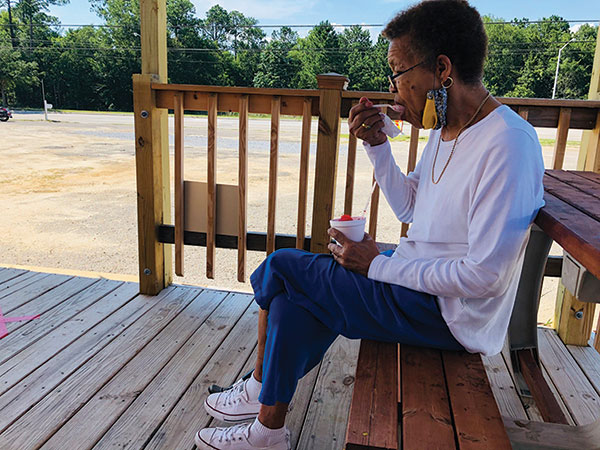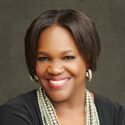For some reason, my mother always wanted to be “thick,” to have a little weight on her. I could not relate because I’ve always been “round” (as she calls me). Food and a kiss solved everything, or at least that’s what momma led us to believe. When we slammed our hand in the door or stomped our toe, she gave us a big, quick and animated kiss on the injured area. Sometimes she kissed her finger to “boop” the injured spot.
This affection distracted us until she gave us something to eat, which further distracted us and often made it all better. What’s better in life than good food and kisses?
My mother enjoys eating very much. She grazes much of the day and usually affirms she is ready to eat when asked. Although she eats well, she was losing weight consistently — dropping down
to 93 pounds. When she was at her most pleasing weight (to her), she was wearing a plus-size 16 and weighed close to 165 pounds or more. She’d intentionally eaten herself to plus-size status.
Now that I think back to the doctor’s appointments and emergency room visits where I always was asked about momma’s eating habits, I think the medical professionals were a little concerned about her weight. I shrugged it off because I recognized that weight loss and the desire to eat wane for many elderly people like her due to dementia and other ailments. Additionally, momma was less than a hundred pounds when she and daddy married and was barely 95 pounds during her first pregnancy (with me).
After her stroke, momma’s eating issue became more pronounced and was unsuccessfully addressed by several speech therapists. Since her stroke six years ago, she’d developed the habit of chewing her food and spitting out the undesirable textures. It seemed to get progressively worse. These were no longer just rice, peanuts and hard objects, but her beloved cornbread. The therapists found no physical cause but told us the behavior is common in those with dementia.
Therapists consistently have asked her to slow down to swallow and to avoid foods with textures like rice, corn and cornbread. A few times, she tried to comply and became very frustrated by their (and my) insistence on chewing or swallowing in a particular way. So, we decided not to adjust and not frustrate her.
After years of this, and the additional concern about her weight, the medical practitioners diagnosed her with dysphagia. This should not be confused with dysphasia, which is a language disorder — although both can be caused by brain or neurological damage.
Symptoms of dysphagia, like dementia, can vary. They may include the inability to swallow, feeling like food gets stuck during the swallowing process, regurgitation, frequent heartburn, coughing during swallowing, etc. According to The Cleveland Clinic, stroke survivors like my mother who have dysphagia are affected in the oral and pharyngeal phase of swallowing instead of the esophageal phase. Strokes and other nervous system and brain disorders can cause tongue weakness, chewing problems and neuromuscular problems that can lead to weight loss and malnutrition.
My mother’s primary physician and a hospital therapist suggested we start pureeing her food, so we dusted off a blender we’d purchased several years ago. Although the food didn’t look aesthetically pleasing, she enjoyed it. She ate more, discharged less and left very little for us to clean up. By her two-week post-hospital appointment, she’d gained six pounds.
Her cheeks and legs began filling out, and I noticed weight gain in her fingers, which had become transparent and hard to prick for glucose testing. She has since gained 13 pounds and still enjoys her pureed food.
If you suspect you or a loved one is showing signs of dysphagia, please contact your physician for a proper diagnosis. Bear in mind that some symptoms of dysphagia can be signs of other ailments.



